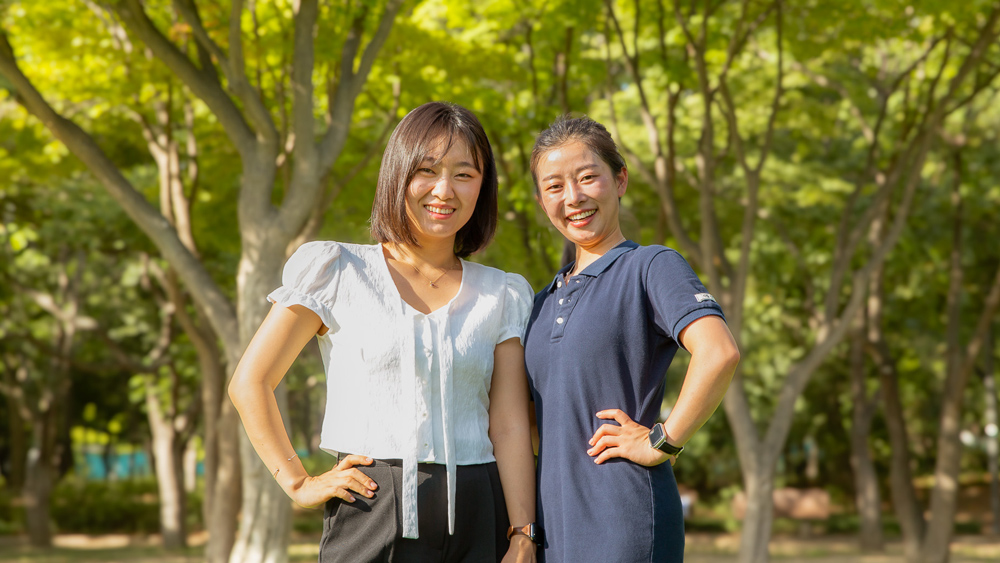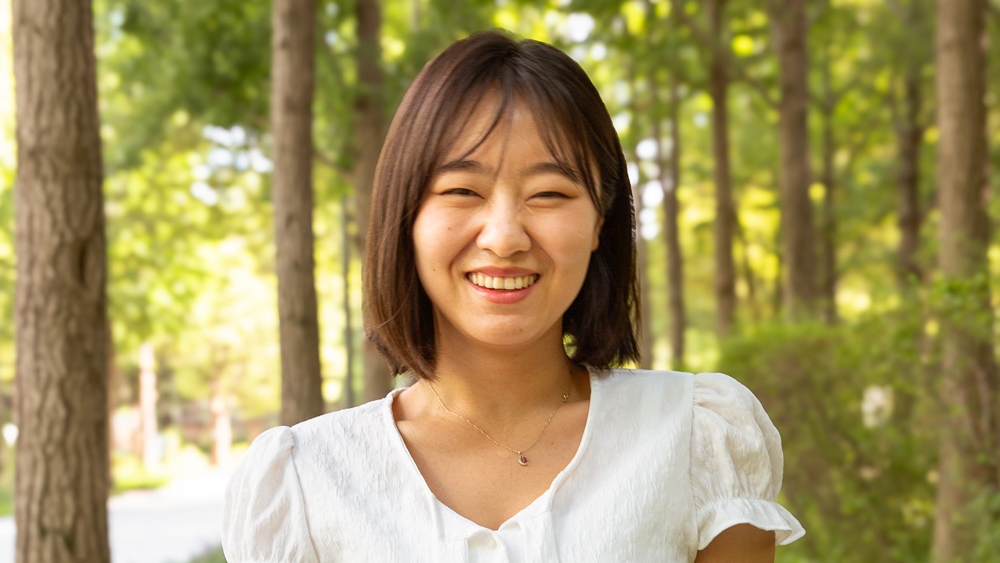“Until I Escaped from North Korea, I Thought the Kim Family were Gods” – Bella’s Story
I was 10 years old when I escaped from North Korea.
Sometimes, when people hear this, they assume I don’t feel close to my North Korean identity because I left at such a young age. But I can clearly remember my childhood, my most impressionable years, shaped by the hands of the regime.
Through songs and schooling, every aspect of my life was warped by indoctrination. In kindergarten, we learned heroic tales about Kim Il-sung and Kim Jong-il. National holidays were celebrated with special snacks distributed by the government. There were portraits of the Kims prominently displayed in our home, that I cleaned every morning to a wake-up song praising the regime.
I was filled with reverence and gratitude toward the Kim family. To me, they were like gods, and North Korea was my entire universe.

The area of Haesan-si, Yanggang-do where I lived was very cold. We frequently ran out of food to eat, and endured harsh winters with thin clothes and shoes that would fall apart as you wore them. But still, I never questioned the regime. It was the only life I had ever known, so I believed that’s all there was to the world.
The thought of leaving was unimaginable.
When my mother suggested I join her in China, where she had escaped three years prior, I called her a traitor. You betrayed the General. You should come back to North Korea right now–these harsh words came from the mouth of a 7-year-old, who had only ever known propaganda and control. I saw what I was taught to see, and said what I was told to say.
Eventually, my mother arranged for a broker to help me cross the border. My heart soared at the thought of seeing her again, but at the same time, it sank with a heavy weight. I felt guilty for betraying our dear leader. I was frightened by the thought of leaving my home.

I was also leaving behind my father. At 9 years old, I couldn’t have imagined that those moments together would be our last. I was wearing a new padded jacket and snow boots that my dad had bought just for the trip. He held me tight and told me I would be with my mom soon. I carry the memory with me now, just as I carried it with me when I crossed the frozen river at the border. In the dead of winter, my new life began in an unfamiliar country.
We lived in China for six months before arriving in South Korea. During that time, I relearned and realized a lot of new things–like what it felt like to be full. Just being able to eat to my heart’s content brought me so much happiness. Being able to sing songs and watch cartoons and movies that weren’t about the Kim regime was fun and eye-opening.
Friendship and romance, heartbreak and hope–through the lenses of other people’s lives, I saw a world that wasn’t defined by loyalty to a regime. This was a world that was free.
This was the world the North Korean government hadn’t wanted me to see, because I would have realized my life there was not normal.

Arriving in South Korea only made this more apparent. While other children had grown up dreaming of becoming presidents, celebrities, or scientists, I had dreamt of becoming a butterfly, so I could fly close to General Kim Jong-il.
Childhood is when we learn how to see the world, but my view had been distorted by my homeland. At the same time, though, denying North Korea felt like denying myself and my family. I still loved where I came from, even if it hurt me. Reconciling the hurt with the hope helped me realize how to move forward.
Today, I’m pursuing a double major in Political Science & Diplomacy and North Korean Studies at Ewha Women’s University. My dream is to attend law school and help North Korean refugees who are facing legal challenges.

I love North Korea enough to want to change it, for current and future generations. For the children in North Korea now, who think the world starts and ends with the Kim regime. For the children like me, who have grown up and realized that there’s so much more to life, and we are the heroes of our own stories.
I share my story today, asking for the support of people like you. Your attention and support are more powerful than any political regime. Share our stories with more people. Support organizations that are rescuing North Korean refugees and finding ways to send information back inside the country. Help us create a future where children born in North Korea can see and experience the world for themselves.
Free from politics and propaganda, free to discover, and free to dream. There is no greater source of hope than the North Korean people themselves.
In freedom, a vast new world opened up to Bella, one that wasn’t defined by the regime. Each new experience helped her slowly unlearn a decade of propaganda, a process that was accelerated by movies and other forms of foreign media.
Inside North Korea, foreign media is just as powerful. LiNK’s Information Access Programs develop news strategies, technology, and content to send back into the country and empower the North Korean people, ultimately eroding the regime’s legitimacy and control. Help ensure this crucial work can continue.
Give Today
North Korean Fellows in the United States: Meet the Class of 2025

Please join us in welcoming Hannah and Rose, LiNK’s 2025 Advocacy Fellows!
The Advocacy Fellows program partners with young North Korean defectors to build their skills as effective leaders, storytellers, and agents of change for this issue. Hannah and Rose spent the last month training and preparing with our team in South Korea, and will now be traveling across the US to share their stories!
Join us at a Fellows speaking event near you!
Dallas, TX
September 9th, 6pm
Southern Methodist University | Dallas Hall Room 306 (McCord Auditorium)
3225 University Blvd, Dallas TX 75205
RSVP Here
Guest parking information here
Waco, TX
September 11th, 6pm
Baylor University, Foster Campus | Room 240
1621 S 3rd St, Waco, TX 76706
RSVP Here
Parking: 1521 S Fourth St. Waco,TX 76706 (Google maps or Apple Maps)
Madison, WI
September 16th, 12pm
UW-Madison | Lubar Commons (Room 7200)
975 Bascom Mall, Madison, WI 53706
RSVP here
Evanston, IL
September 20th, 5pm
Northwestern University | Harris Hall 107
1881 Sheridan Rd, Evanston, IL 60201
RSVP Here
Palo Alto, CA
September 28th, 1:20pm
True North Church
655 Arastradero Road, Palo Alto, CA 94306
RSVP Here
Berkeley, CA
September 29th, 6pm
UC Berkeley | Stephens Lounge at the MLK Student Union
2495 Bancroft Way, Berkeley, CA 94720
Parking: Lower Sproul Garage
RSVP Here
Washington, D.C.
October 8th, 1pm ET
The Stimson Center
1211 Connecticut Avenue Northwest Washington, DC 20036
RSVP Here
*Online livestream also available: RSVP Here
Washington, D.C
October 9th, 10:30am
ET Hudson Institute
1201 Pennsylvania Ave N.W. Suite 400 Washington, DC 20004
RSVP Here
Philadelphia, PA
October 13th, 5:30pm
University of Pennsylvania
3401 Walnut Street, Philadelphia, PA 19104
RSVP Here
New York, NY
October 16th, 2025, 12 PM
The Korea Society
350 Madison Avenue, 24th Floor
New York, NY 10017
RSVP here
Los Angeles, CA
October 21st, 7:30pm
UCLA
Haines Hall Room A2 Portola Plaza, Los Angeles, CA 90095
Parking available in UCLA Parking Structure 2
RSVP here
Additional details and timely updates will be sent to RSVP’ed guests via email.

Hannah is a 4th year student at Hongik University studying Electrical and Electronic Engineering. While participating in LiNK’s Changemaker Scholarship Program, she worked on developing devices and strategies that increase information access for people inside North Korea. Her goal as an Advocacy Fellow is to grow as a leader and communicator, and facilitate more collaborative work on this issue.

Rose graduated from Hongik University’s Department of Architecture. For her final project, she designed a memorial to honor North Korean human rights and provide comfort to defectors who had to leave their homeland. She drew inspiration from the Holocaust and 9/11 Memorials in the US, and was deeply moved by how such spaces contribute to healing and progress. As an Advocacy Fellow, Rose hopes to continue finding her identity and increase interest in this issue.



